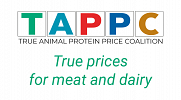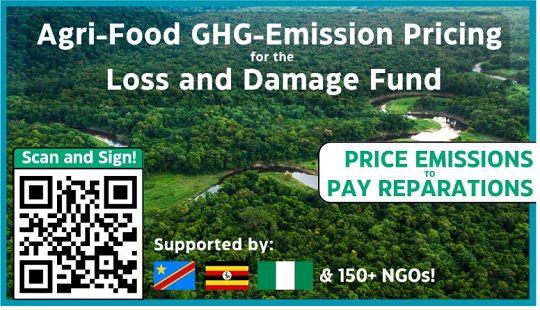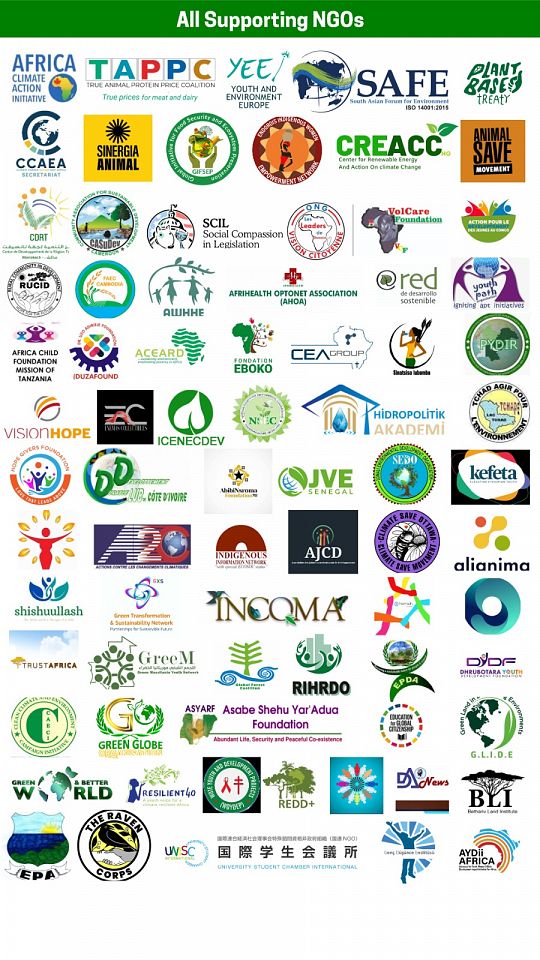Press Release TAPPC-ACAI: 4 African Countries & 150+ NGOs urge OECD/China to start agri-food emission pricing
Coalition of Four African Countries and 100+ NGOs demand Just Climate Finance
Innovative agri-food finance mechanisms could unlock more than 40 billion USD in revenue for the Loss and Damage Fund.
The Declaration
The 29th UNFCCC Conference of the Parties (COP29) commenced yesterday in Baku, Azerbaijan. With the major focus being on climate finance, as well as the operationalisation of the widely successful COP28 Declaration on Food and Agriculture, it is vital to target both issues holistically. For this reason, the Environmental Ministries of the Democratic Republic of Congo, Nigeria, Uganda, and Equatorial Guinea, supported by a coalition of 150+ NGOs will send the following declaration to the COP29 Presidency, the OECD, and China [1].
“We believe that COP29 and UNFCCC Climate Conferences thereafter can only be successful if:
1. The closing statement includes “transitioning away from animal protein overconsumption according to national or global dietary guidelines by implementing GHG-Emission pricing mechanisms in agri-food systems.”
2. It urges the EU Commission, OECD countries, and China to lead the way towards harmonised GHG-emission pricing in agri-food systems.
3. It uses at least 20% of the revenue of above-mentioned GHG-Emission pricing mechanisms to finance the Loss and Damage Fund.”
(The full declaration (EN, FR, ES, PT) and all signatories can be found here.)
Innovative Finance Mechanisms
COP29, also known as the “Finance COP” for its emphasis on updating global climate finance commitments, will focus heavily on adopting a new climate finance target. This marks the first time in 15 years that countries will reevaluate the amount and type of finance needed to combat climate change since the $100 billion annual target was set in 2009. Centred around the New Collective Quantified Goal (NCQG), all attending countries and stakeholders will have to renew their commitment to generating enough climate finance for the coming crucial decades. Whether public or private, the NCQGs are dependent on new innovative finance mechanisms to ensure the investments needed to combat, and prevent climate change. A significant part of this commitment will be to the Loss and Damage Fund, which materialised during COP28 to ensure reparations for damages induced by the ongoing climate crisis.
“It is vital that COP29 will ensure that such innovative finance mechanisms are created and used to pay reparations to the most vulnerable countries on our planet.” (Willem Branten - Public Affairs TAPP Coalition)
Global Food System Pollution
The global food system is responsible for 33% of all greenhouse gas (GHG) emissions, with livestock production alone contributing between 14.5% and 20%. Meat consumption currently far exceeds national and global dietary guidelines, with an average of 71.4 kg per capita annually in OECD countries, compared to 26.6 kg in developing nations. With livestock herds expected to grow by 46% by 2050, the projected rise in emissions threatens the goals set by the Paris Agreement, including the critical target of net-zero emissions by 2050. The coalition highlights the broader environmental impacts of livestock farming, including deforestation, land-use change, and biodiversity loss, with 13 billion hectares of deforestation occurring annually due to agricultural expansion. The declaration echoes warnings from recent reports by the IPCC and FAO, which have called for reducing meat consumption in high-income countries as a critical step in addressing the climate crisis.
“Limiting the detrimental effects animal protein overconsumption has on the climate is crucial in averting a climate crisis.” (Willem Branten - Public Affairs TAPP Coalition)
The coalition stresses that without decisive steps to address the environmental impact of meat production, future climate conferences risk falling short in the fight against climate change. By promoting sustainable diets and an innovative finance mechanism for the Loss and Damage Fund, the coalition believes COP29 and future UNFCCC climate conferences can set a clear path toward a more just and climate-resilient future.
[1] To be sent on the COP29 Thematic Day: Food, Water and Agriculture (19 November 06.00 UTC). Signing is possible until 18 November 17.00 UTC.



